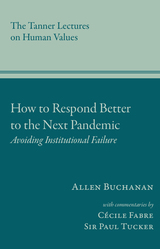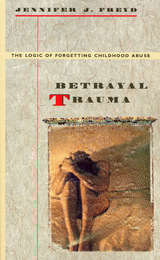

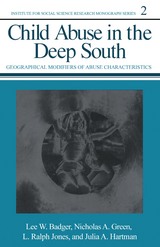
A landmark finding in this study is that different combinations of cultural factors contribute to the physical and sexual abuse of black and white children in rural, small-town, and urban communities. The rates of abuse discovered and reported in small towns are revealed to be materially higher than those in rural or urbanized locations, especially for young white males, and the authors query whether this indicates higher rates of abuse or higher rates of reporting
Child Abuse in the Deep South provides a quantitative benchmark that investigators and policy-makers will find invaluable on the path to defining at-risk populations, effective interventions, and treatments.
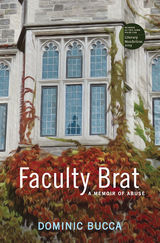
At the most prestigious preparatory schools in the United States, the children of educators are referred to as “faculty brats.” Though generally lacking the privilege of the institution’s wealthy students, faculty brats enjoy access to the school’s extensive grounds and facilities and are part of everyday campus life.
Dominic Bucca’s art teacher mother married his music teacher stepfather twice, and the young boy wondered if the union might be twice as strong as a result. Instead, this faculty brat quickly discovered that the marriage was twice as flawed. When Dominic was nine years old, his stepfather began sexually abusing him in the faculty housing attached to the boys’ dorm his parents oversaw. Years later, he found escape by reaching out to his biological father, and learned to split his life between two realities.
For nearly twenty-five years, Bucca hid the secret of his stepfather’s abuse from his mother and sisters. When he decided to tell, hoping to prevent his stepfather from continuing to teach young boys, Bucca discovered the limits of both his family and the legal system.
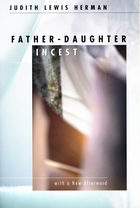
Through an intensive clinical study of forty incest victims and numerous interviews with professionals in mental health, child protection, and law enforcement, Judith Herman develops a composite picture of the incestuous family. In a new afterword, Herman offers a lucid and thorough overview of the knowledge that has developed about incest and other forms of sexual abuse since this book was first published.
Reviewing the extensive research literature that demonstrates the validity of incest survivors' sometimes repressed and recovered memories, she convincingly challenges the rhetoric and methods of the backlash movement against incest survivors, and the concerted attempt to deny the events they find the courage to describe.
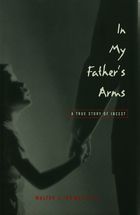
To the outside world, Walter de Milly's father was a prominent businessman, a dignified Presbyterian, and a faithful husband; to Walter, he was an overwhelming, handsome monster. This paperback edition of In My Father's Arms: A Son's Story of Sexual Abuse adds a reflective preface by the author and a foreword by Richard B. Gartner, author of Beyond Betrayal: Taking Charge of Your Life after Boyhood Sexual Abuse.
"A sensitive and compelling account of father-son incest. In spite of the suffering portrayed, the account also gives testimony to the strength of family bonds, and to the courage and resilience of the human spirit."—Fred S. Berlin, MD, Director of the National Institute for the Study, Prevention and Treatment of Sexual Trauma
"This is the most detailed and utterly plausible account I've ever read of what it feels like to be an abused child, and it is told with cinematic presence and verisimilitude. The anger, the love, the evasiveness and jealousy and confusion, the need to dissociate oneself from one's own actions and reactions—all are presented in a harrowing narrative, which is as tragic as a Greek drama and as engrossing as a Victorian novel. The unexpected element in this book—which falls on it like manna—is its nourishing, exquisite lyricism."—Edmund White, author of A Boy's Own Story
cloth:
"Walter de Milly has written a sensitive and compelling account of father-son incest. In spite of the suffering portrayed, the account also gives testimony to the strength of family bonds, and to the courage and resilience of the human spirit."—Fred S. Berlin, M.D., Director of the National Institute for the Study, Prevention and Treatment of Sexual Trauma
"This is the most detailed and utterly plausible account I've ever read of what it feels like to be an abused child, and it is told with cinematic presence and verisimilitude. The anger, the love, the evasiveness and jealousy and confusion, the need to dissociate oneself from one's own actions and reactions—all are presented in a harrowing narrative, which is as tragic as a Greek drama and as engrossing as a Victorian novel. The unexpected element in this book—which falls on it like manna—is its nourishing, exquisite lyricism."—Edmund White
The TV-perfect family of Walter de Milly III was like many others in the American South of the 1950s—seemingly close-knit, solidly respectable, and active in the community.
Tragically, Walter's deeply troubled father would launch his family on a perilous journey into darkness. To the outside world, this man is a prominent businessman, a dignified Presbyterian, and a faithful husband; to Walter, he is an overwhelming, handsome monster. Whenever the two are together, young Walter becomes a sexual plaything for his father; father and son outings are turned into soul-obliterating nightmares.
Walter eventually becomes a successful businessman only to be stricken by another catastrophe: his father, at the age of seventy, is caught molesting a young boy. Walter is asked to confront his father. Walter convenes his family, and in a private conference with a psychiatrist, the father agrees to be surgically castrated.
De Milly's portraits of his relationships with his father and mother, and the confrontation that leads to his father's bizarre and irreversible voluntary "cure," are certain to be remembered long after the reader has set aside this powerful contribution to the literature of incest survival.
Walter de Milly is a writer living in Key West, Florida.
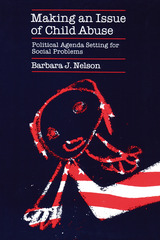
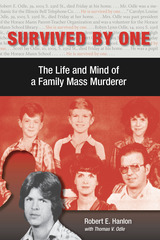
On November 8, 1985, 18-year-old Tom Odle brutally murdered his parents and three siblings in the small southern Illinois town of Mount Vernon, sending shockwaves throughout the nation. The murder of the Odle family remains one of the most horrific family mass murders in U.S. history. Odle was sentenced to death and, after seventeen years on death row, expected a lethal injection to end his life. However, Illinois governor George Ryan’s moratorium on the death penalty in 2000, and later commutation of all death sentences in 2003, changed Odle’s sentence to natural life.
The commutation of his death sentence was an epiphany for Odle. Prior to the commutation of his death sentence, Odle lived in denial, repressing any feelings about his family and his horrible crime. Following the commutation and the removal of the weight of eventual execution associated with his death sentence, he was confronted with an unfamiliar reality. A future. As a result, he realized that he needed to understand why he murdered his family. He reached out to Dr. Robert Hanlon, a neuropsychologist who had examined him in the past. Dr. Hanlon engaged Odle in a therapeutic process of introspection and self-reflection, which became the basis of their collaboration on this book.
Hanlon tells a gripping story of Odle’s life as an abused child, the life experiences that formed his personality, and his tragic homicidal escalation to mass murder, seamlessly weaving into the narrative Odle’s unadorned reflections of his childhood, finding a new family on death row, and his belief in the powers of redemption.
As our nation attempts to understand the continual mass murders occurring in the U.S., Survived by One sheds some light on the psychological aspects of why and how such acts of extreme carnage may occur. However, Survived by One offers a never-been-told perspective from the mass murderer himself, as he searches for the answers concurrently being asked by the nation and the world.
READERS
Browse our collection.
PUBLISHERS
See BiblioVault's publisher services.
STUDENT SERVICES
Files for college accessibility offices.
UChicago Accessibility Resources
home | accessibility | search | about | contact us
BiblioVault ® 2001 - 2024
The University of Chicago Press





